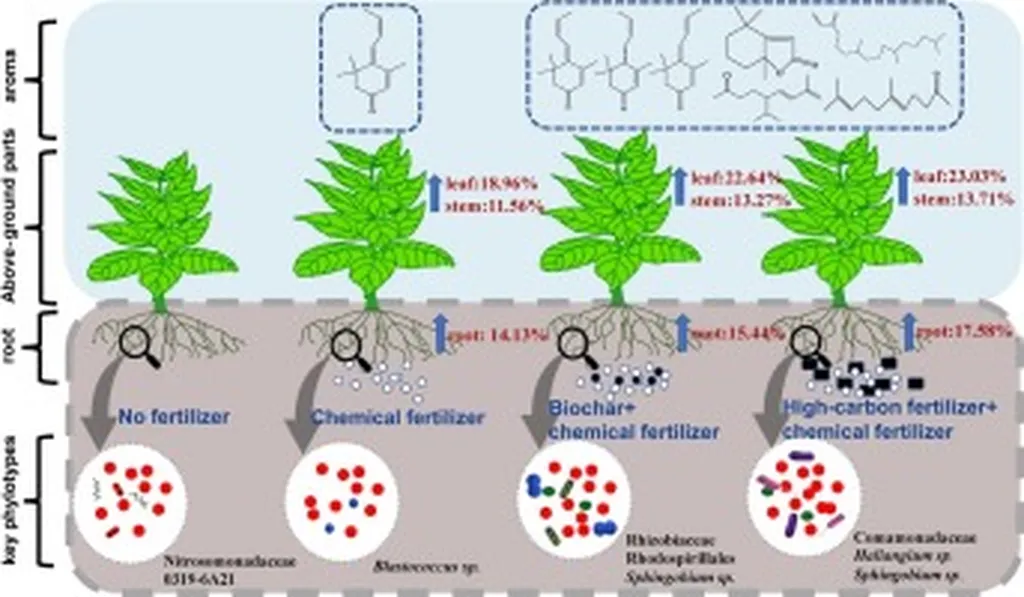In the heart of Hunan Province, a quiet revolution is taking place in the fields of tobacco cultivation. Researchers have been exploring the potential of microbial organic fertilizers (MOF) to enhance soil quality and boost tobacco plant growth, with promising results that could reshape agricultural practices. A recent study published in *Frontiers in Soil Science* sheds light on the transformative impact of these novel fertilizers, offering a glimpse into the future of sustainable farming.
The study, led by Chunsheng Guo of Inner Mongolia Kunming Cigarette Co., Ltd., focused on the long-term effects of MOF on tobacco plants and soil microbial communities. The research team evaluated three different treatments: T1 (Basic fertilizer + Bacillus), T2 (Basic fertilizer + Pseudomonas), and T3 (Basic fertilizer + Bacillus and Pseudomonas). The findings revealed that microbial fertilizers can significantly improve soil fertility and promote tobacco growth by modulating soil microbial communities.
One of the most striking results was the pronounced effect of the T1 treatment in reducing microbial abundance, as evidenced by a lower Sobs value of 4,222 compared to 4,825 in the control group. This reduction was statistically significant (p < 0.05) and was accompanied by a notable enhancement in the visual quality of tobacco leaves. "The visual quality of tobacco leaves is crucial for commercial purposes," explained Guo. "Our findings suggest that microbial fertilizers can play a pivotal role in improving the marketability of tobacco crops."The study also highlighted the potential of microbial fertilizers to enhance soil physicochemical properties. "Soil health is the foundation of sustainable agriculture," said Guo. "By improving soil quality, we can ensure the long-term productivity and resilience of our agricultural systems."The implications of this research extend far beyond the tobacco fields of Hunan Province. As the global agricultural sector grapples with the challenges of climate change, soil degradation, and the need for sustainable practices, microbial fertilizers emerge as a promising solution. "This study provides a scientific foundation for the application of microbial fertilizers in tobacco cultivation and offers new perspectives for sustainable agricultural development," Guo noted.The commercial impacts of this research are substantial. Farmers can potentially reduce their reliance on chemical fertilizers, lowering production costs and minimizing environmental harm. Additionally, the improved quality of tobacco leaves can enhance the market value of the crop, benefiting both farmers and the agricultural industry as a whole.As the world seeks innovative solutions to feed a growing population while preserving the planet, the findings of this study offer a beacon of hope. The integration of microbial fertilizers into agricultural practices could pave the way for a more sustainable and profitable future. With further research and development, these fertilizers may become a cornerstone of modern farming, ensuring the health of our soils and the prosperity of our agricultural communities.

